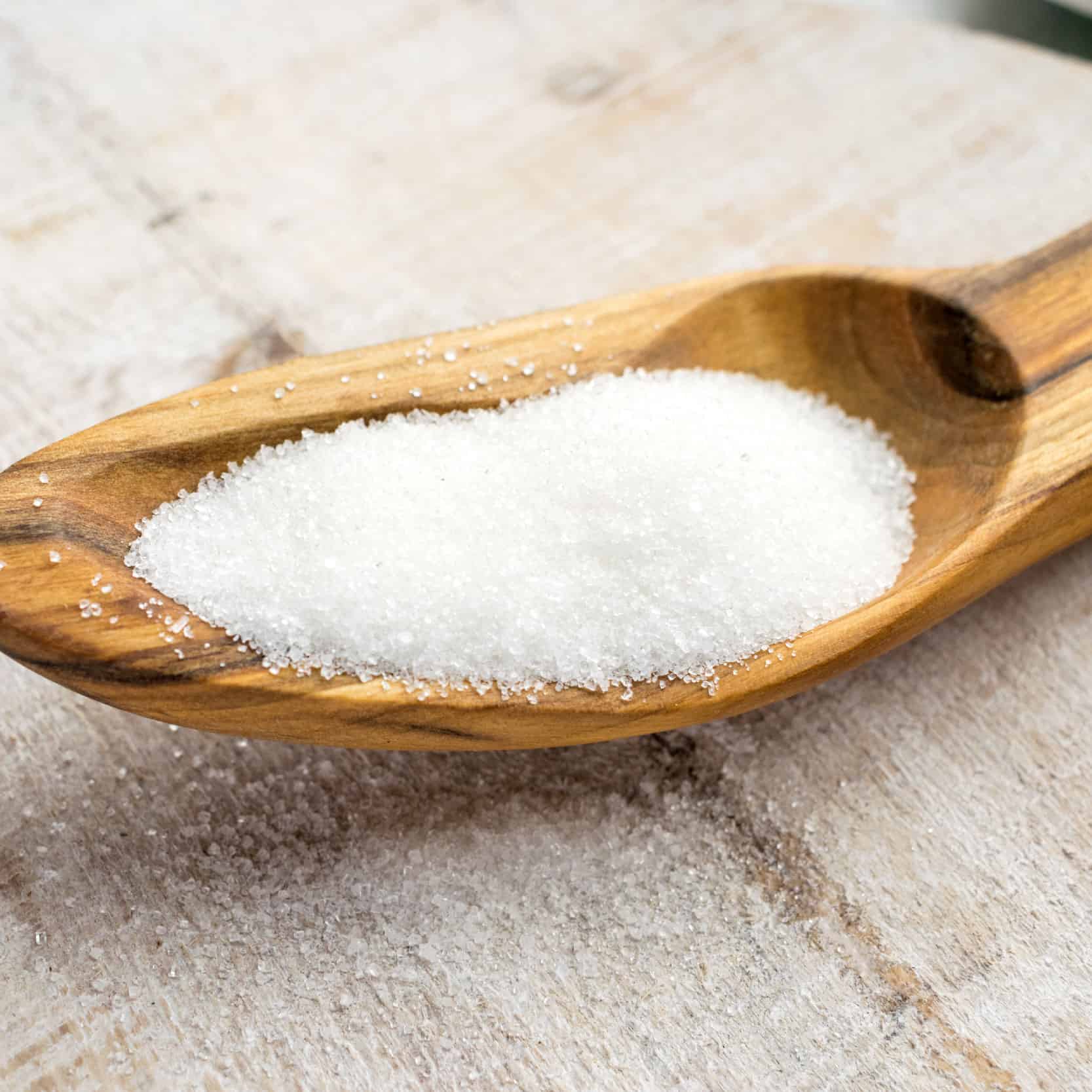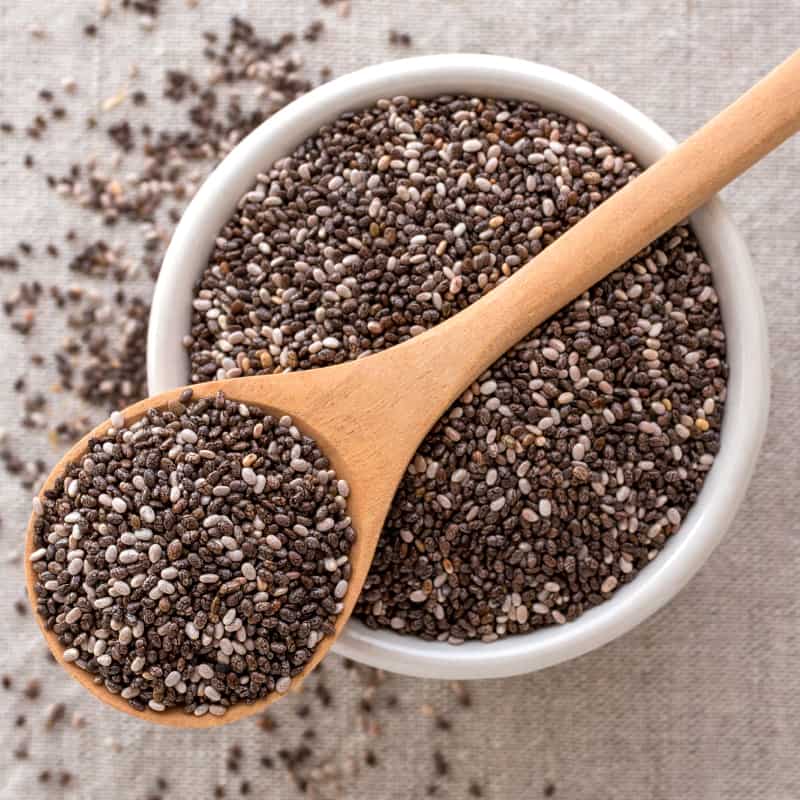This Dr. Axe content is medically reviewed or fact checked to ensure factually accurate information.
With strict editorial sourcing guidelines, we only link to academic research institutions, reputable media sites and, when research is available, medically peer-reviewed studies. Note that the numbers in parentheses (1, 2, etc.) are clickable links to these studies.
The information in our articles is NOT intended to replace a one-on-one relationship with a qualified health care professional and is not intended as medical advice.
This article is based on scientific evidence, written by experts and fact checked by our trained editorial staff. Note that the numbers in parentheses (1, 2, etc.) are clickable links to medically peer-reviewed studies.
Our team includes licensed nutritionists and dietitians, certified health education specialists, as well as certified strength and conditioning specialists, personal trainers and corrective exercise specialists. Our team aims to be not only thorough with its research, but also objective and unbiased.
The information in our articles is NOT intended to replace a one-on-one relationship with a qualified health care professional and is not intended as medical advice.
Human Growth Hormone (HGH) Benefits and How to Increase Naturally
November 1, 2023

If you’re a sports fan, you’ve probably heard of human growth hormone — more commonly known as HGH — and associate it with cheating and steroid use. However, did you know that HGH is a natural testosterone booster that’s produced on its own and provides many important benefits? It’s true.
Is human growth hormone good for you? Natural HGH benefits are significant. It’s actually vital to cellular growth and regeneration throughout our entire lives. Growth hormone makes sure that our muscles, bones and fat tissues stay in a healthy balance.
The study of human growth hormone is a little more than 100 years old, and synthetic human growth hormone was first developed in the 1980s and approved by the FDA for specific uses in adults and children. Let’s find out why.
What Is Human Growth Hormone?
Called hGH or HGH, human growth hormone is naturally produced in the pituitary gland, which is located at the base of the brain.
Growth hormone is also known as somatotropin, which is a peptide chain containing about 190 amino acid residues that stimulates growth, cell reproduction and cell regeneration in humans. It’s produced by the pituitary gland in mammals.
HGH also helps us maintain healthy human tissue, including that of the brain and various vital organs.
Once secreted, HGH remains active in the bloodstream for a few minutes, allowing just enough time for the liver to convert it into growth factors, the most crucial being insulin-like growth factor (IGF-1), which has growth-promoting properties on every cell in the body.
FAQ
With HGH, there are many frequently asked questions, as HGH is widely misunderstood.
Is HGH illegal?
The use or distribution of HGH without a medical need and prescription is considered illegal.
Is human growth hormone a steroid?
No, it is not a steroid, but it’s often mistaken for one due to the fact that it’s so commonly taken with (and in the athletic world, tested for) along with anabolic steroids.
According to the Drug Enforcement Administration (DEA), HGH is most commonly abused by athletes, bodybuilders and aging adults. Trade names include Genotropin®, Humatrope®, Norditropin®, Nutropin®, Saizen® and Serostim®. The World Anti-Doping Agency and the International Olympic Committee consider HGH a performance-enhancing drug that athletes are forbidden to use.
What does growth hormone do in adults?
Human growth hormone for men has a positive impact by enhancing exercise capacity and muscle mass. This is why HGH bodybuilding and sports usage is so common, but instead of looking for HGH for sale, we’re going to talk about natural ways to enhance this vital growth hormone later.
Men are likely to feel the first signs of aging and HGH decrease after age 35, such as loss of libido, weakness, baldness and memory loss.
Compared to women, there is a U-shape relationship between HGH and age. In a study of 6,843 individuals aged 23 to 85 years, HGH levels decreased in women under 60 years old and increased in men over 50 years old.
Men who are treated with HGH have been shown to experience a reduction of fat, skin tightening, hair becoming healthier and thicker, and correction of erectile dysfunction.
How does human growth hormone for women?
More women are now exploring HGH for its anti-aging and weight-loss properties. Deficiency in human growth hormone in women is due to the pituitary gland not producing enough HGH. This is considered a rare condition and can be reversed with growth hormone therapy.
In women, human growth hormone levels start to decline in their 30s (as part of perimenopause), and may progressively decline approximately 15 percent for every decade of adult life. Signs of HGH deficiency include dry skin, thinning hair, greater belly fat and the development of wrinkles.
Adequate HGH levels help women improve an appropriate body-fat ratio and elasticity in skin. Risk of osteoporosis is reduced when HGH levels in women are balanced.
Intramuscular HGH injections may help normalize sleep patterns, improve skin elasticity, help lose excess fat and enhance the immune system.
How important is HGH for children?
Growth hormone is essential to childhood growth and development. It also helps maintain tissues and organs in childhood (and throughout life). Throughout childhood, the daily secretion of HGH increases, peaks during adolescence and then steadily declines from then on.
Deficiency Symptoms, Causes and Risk
Signs and symptoms of growth hormone deficiency vary with age, and children can have different symptoms than an adult. Children being significantly shorter than other children their age and growing less than two inches per year are common symptoms of growth hormone deficiency.
Children with normal growth hormone levels typically grow about 2.5 inches a year from age 1 until they hit puberty, when they can grow up to four inches a year. However, a decline in human growth hormone does not have any impact on a child’s intelligence.
Other symptoms of growth hormone deficiency in children include:
- Facial features may appear younger than children who are the same age
- Delayed puberty, sometimes will not go through puberty
- Increased fat around the stomach and face
- Prominent forehead
- Slow hair growth
Adults may experience a combination of symptoms from human growth hormone deficiency, including:
- Depression
- Hair loss
- Sexual dysfunction
- Decreased muscle strength and mass
- Memory loss
- Lack of concentration
- Dry skin
- Increased triglycerides
- Fatigue
- Cardiovascular disease risk
- Increase LDL (“bad”) cholesterol
- Insulin resistance
- Reduced bone density
- Temperature sensitivities
- Increased weight, especially around the waist
Causes and Risk Factors
A deficiency can be caused by damage to the pituitary gland or hypothalamus that occurred before a child was born. This congenital cause is due to genetic error, so the risk of this occurring is increased if one or both parents also have a deficiency.
It can also be caused by something that occurred during or after birth (an acquired cause). There are also several possible acquired causes.
A child is generally more at risk for growth hormone deficiency if he or she has a brain tumor, brain injury or radiation treatment to the head.
Benefits
Human growth hormone can be injected in larger doses to promote weight loss and increase muscle size, while a small doses can be used for general recovery, health and ignite the anti-aging process. Presently, there is a growing list of benefits of HGH treatment in children, adolescents and adults.
It’s important to note that HGH treatment is often reserved for those people diagnosed with human growth hormone deficiency or suffer from a growth hormone–related problem.
1. Increased Muscle Strength
Human growth hormone has been known to improve physical capacity of individuals by stimulating collagen synthesis in the skeletal muscle and tendons, increasing muscle strength and improving exercise performance as a result.
In the International Journal of Endocrinology, 14 healthy men at the ages of 50 to 70 were randomized into two groups for a study. Seven subjects were administered HGH therapy with seven placebo subjects, and they were re-evaluated after six months.
After six months, there was a significant increase in the leg press responsiveness muscles in the growth hormone group.
2. Better Fracture and Wound Healing
Administration of human growth hormone has been shown to speed up the regeneration of bone, making it a key part of bone healing. Applying growth factors like IGF-1 is known to stimulate the metabolism of bone.
In a study published in the journal BONE, growth hormone was systemically applied to recombinant species-specific rats by subcutaneous injections and was compared to the placebo group. As a result, the local growth factor application revealed a stronger effect on fracture healing than the systemic human growth hormone injection.
These observations suggest that the local application of growth hormone speeds up fracture healing significantly without systemic adverse effects.
Researchers have reported the beneficial effects of HGH in enhancing the healing of injuries and wounds significantly. A randomized, controlled, double-blinded study of six months of HGH therapy found that healthy older men who were administered growth hormone had enhanced collagen deposition during the wound-healing process, helping the healing process.
3. Enhanced Weight Loss
Obese individuals have limited response to growth hormone stimuli release, and after successful reduction of weight, growth hormone responsiveness can be partial or complete.
Growth hormone accelerates lipolysis, the breakdown of lipids, and involves hydrolysis of triglycerides into glycerol and free fatty acids. Impaired secretion of human growth hormone leads to loss of lipolytic effect.
Dietary restrictions and growth hormone treatment effects on anabolic and lipolytic actions as well as the changes in growth hormone secretions and insulin were investigated in a study published in Hormone Research.
Twenty-four obese participants were on a hypocaloric diet and treated with recombinant human growth hormone or a placebo. Growth hormone treatment caused a 1.6-fold increase in weight loss, with the greatest loss being visceral fat compared to the placebo. In the placebo group, lean body mass was lost, whereas lean body mass was gained in the growth hormone group.
This study suggests that in obese participants who eat a caloric-restriction diet, growth hormone accelerates the loss of body fat and improves growth hormone secretion. Thus, human growth hormone can serve a therapeutic role to help obese people lose weight, including losing belly fat.
4. Stronger Bones
The pituitary gland stimulates the release of growth hormone and is essential for regulating bone growth (including helping children grow taller), especially during puberty. Growth hormone stimulates the production of IGF-1, which is produced in the liver and released in the blood.
With age, human growth hormone decreases and may be the cause of older individuals not being able to form or replace bone rapidly. The IGF-1/growth hormone duo stimulates bone-forming and bone-resorbing cells, leading to increased bone mass.
5. Reduced Cardiovascular Disease Risk
Adults who are growth hormone-deficient have an increased risk for cardiovascular disease, leading to decreased life expectancy.
In Sweden, 104 patients who are growth hormone-deficient were studied for cardiovascular disease risk. These patients had higher body mass and triglyceride concentrations compared to controls.
Results suggest lipoprotein metabolism is altered by growth hormone deficiency, increasing the risk for cardiovascular disease.

6. Improvement in Erectile Dysfunction
It’s been suggested in recent studies that human growth hormone is responsible for male reproductive function and sexual maturation while deficiency is associated with loss of sexual erection and desire.
Thirty-five healthy adult men and 45 participants with erectile dysfunction were exposed to tactile and visual stimuli in order to elicit penile tumescence in a German study. The increase in growth hormone was greater than 90 percent as determined during developing penile tumescence, followed by a transient decrease afterward.
This study suggests that penile erection may be induced by growth hormone through its stimulating activity on human corpus cavernosum smooth muscle, making it a potential natural remedy for impotence.
7. Decreased Obesity
Abdominal obesity is prevalent in individuals who show low growth hormone and insulin-like growth hormone serum concentrations as well. Human growth hormone treatment has demonstrated positive results in adults who are growth hormone-deficient in treating obesity naturally.
Thirty men ages 48–66 with abdominal/visceral obesity were treated with recombinant human growth hormone in a nine-month, randomized, double-blind study published in the Journal of Clinical Endocrinology & Metabolism.
Abdominal and visceral adipose tissue decreased along with diastolic blood pressure, and improved insulin sensitivity was one of the favorable benefits of human growth hormone found.
8. Better Mood and Cognitive Function
A Lithuanian study investigated the changes in cognitive function, mood and concentration from baseline after six months of treatment with human recombinant growth hormone. Eighteen adult patients with HGH deficiency participated in the study, and growth hormone was administered in 12 international units per week.
As a result, cognitive function and mood significantly increased after six months of therapy, according to mood scales. This study suggests that administering growth hormone can be a possible treatment option to improve cognitive function and mood in adults who are growth hormone-deficient.
9. Better Sleep
The majority of the growth hormone pulsatile secretion happens just after the onset of sleep and continues to rise when the first hours of sleep are reached.
Individuals who are going through sleep deprivation, such as people who work the night shift or late studiers, can be affected negatively throughout the day. Lack of sleep alters pituitary and hypothalamus function, further altering growth hormone release time.
When sleep was deprived for 24 to 36 hours in a study conducted by the University of Chicago’s Department of Medicine, human growth hormone release was drastically decreased and noticeably decreased in growth hormone peak values at night.
The 24-hour pulse rate of growth hormone became random and more frequent throughout these waking hours. This study suggests that sleep deprivation can reduce growth hormone release the morning after and can severely disturb and alter the sleep-wake cycle.
How to Increase HGH Naturally
You’re probably wondering, how can I naturally increase HGH? Here are some of the top ways:
1. High-Intensity Exercise
Research suggests that the exercise-induced growth hormone plus endurance exercise associated with load, intensity, duration and frequency are the determining factors in the regulation of HGH secretion.
What triggers HGH? An exercise intensity above lactate threshold and for a minimum of 10 minutes elicits the greatest stimulus to the secretion of HGH. HIIT workouts are effective in promoting beneficial well-being, health and positive training outcomes, while stimulating HGH.
2. L-glutamine
Supplementing with L-glutamine is known for enhancing exercise performance, maintaining acid-base balance and increasing the storage of glycogen in muscle.
In an Iranian study, 30 healthy non-athlete males were randomly divided into placebo and glutamine supplementation groups and put through the same three days a week eight-week resistance training program.
Both groups increased in performance, but the glutamine groups showed greater increases in lower- and upper-body strength, explosive muscle power, blood testosterone, IGF-1, and HGH compared to the placebo group.
3. L-arginine
Most studies have shown when administering oral L-arginine to participants, arginine alone increases the resting growth hormone levels at least 100 percent, while exercise can increase growth hormone levels by 300 percent to 500 percent.

4. A-GPC
What is the best HGH supplement? According to a study in the 2008 issue of the Journal of the International Society of Sports Nutrition, alpha-glycerylphosphorylcholine (A-GPC) might increase human growth hormone levels.
Participants who consumed 600 milligrams of A-GPC two hours before resistance exercise had increased HGH levels post-exercise compared to those given a placebo.
5. Laughter
Researchers Stanley Tan and Lee Berk at Loma Linda University in Loma Linda, Calif., observed that two hormones, human growth hormone and endorphins, were increased by 27 percent and 87 percent, respectively, when participants anticipated watching a humorous video.
6. Liver Detox
In an animal study, it was shown that HGH stimulates the liver into producing IGF-1, which is released into the body to stimulate the production of cells that are responsible for cell proliferation, increased muscle mass and increased energy.
7. Vitamin C
Studies have observed the correlation of reduced vitamin C concentration in decreased growth hormone secretion, obese patients, increased waist-hip ratio and increased heart disease risk. A pro-HGH diet should include foods high in vitamin C.
What foods may increase growth hormone naturally? Vitamin C-rich foods such as red pepper, kiwi, strawberries and broccoli.
8. Fasting
Fasting is typically not recommended for children, but as an adult past the stages of puberty, fasting is something you may want to consider trying. Does fasting increase HGH? One of the many benefits of fasting includes a naturally induced boost in the secretion of HGH.
Supplements and Usage
When prescribed by a doctor, human growth hormone is given in injection form. There are no HGH pills currently available by prescription.
For children, the approved usages of human growth hormone for height deficiencies due to unknown causes as well as poor growth due to various medicals conditions include:
- Children born small for gestational age
- HGH deficiency or insufficiency
- Turner’s syndrome
- Chronic kidney disease
- Prader-Willi syndrome
For adults, approved HGH uses include:
- HGH deficiency due to rare pituitary tumors or their treatment
- Short bowel syndrome
- Muscle-wasting disease associated with HIV/AIDS
Speak with your healthcare professional about the best HGH dosage for your condition.
Risks and Side Effects
HGH before and after pictures may be impressive, but remember that you should never buy human growth hormone for sale because not only is it illegal, but HGH should only be administered by a doctor.
Is HGH dangerous? In its synthetic form (such as human growth hormone gel), it certainly can be very dangerous, especially when misused.
What are the negative effects of HGH? Side effects of HGH can include:
- Joint and muscle pain
- Carpal tunnel syndrome
- Increased insulin resistance
- Swelling in the arms and legs
- For men, enlargement of breast tissue (gynecomastia)
Individuals also tend to notice their fingers feeling swollen or their faces feeling fuller at doses of four IU and above. This side effect is temporary and has been shown to go away when the dose is lowered within two weeks after the HGH cycle is discontinued.
Final Thoughts
- The use of human growth hormone and the research confirming its anti-aging and performance-enhancing properties have increased throughout the years.
- Symptoms of human growth hormone deficiency include depression, fatigue, decreased muscle strength and mass, insulin resistance, hair loss, cardiovascular disease risk, memory loss, and delayed puberty in children.
- Increased energy levels, exercise performance, lean muscle mass, hair growth and stronger bones are few of the many human growth hormone benefits.
- Human growth hormone supplements (including HGH gel and HGH capsules) should not be taken unless advised by a healthcare provider.
- Prescribed legal HGH is given in injection form.
- The safest ways to boost HGH levels are natural. Natural ways to boost human growth hormone levels include exercise, sleep, liver detox, L-arginine and L-glutamine.










